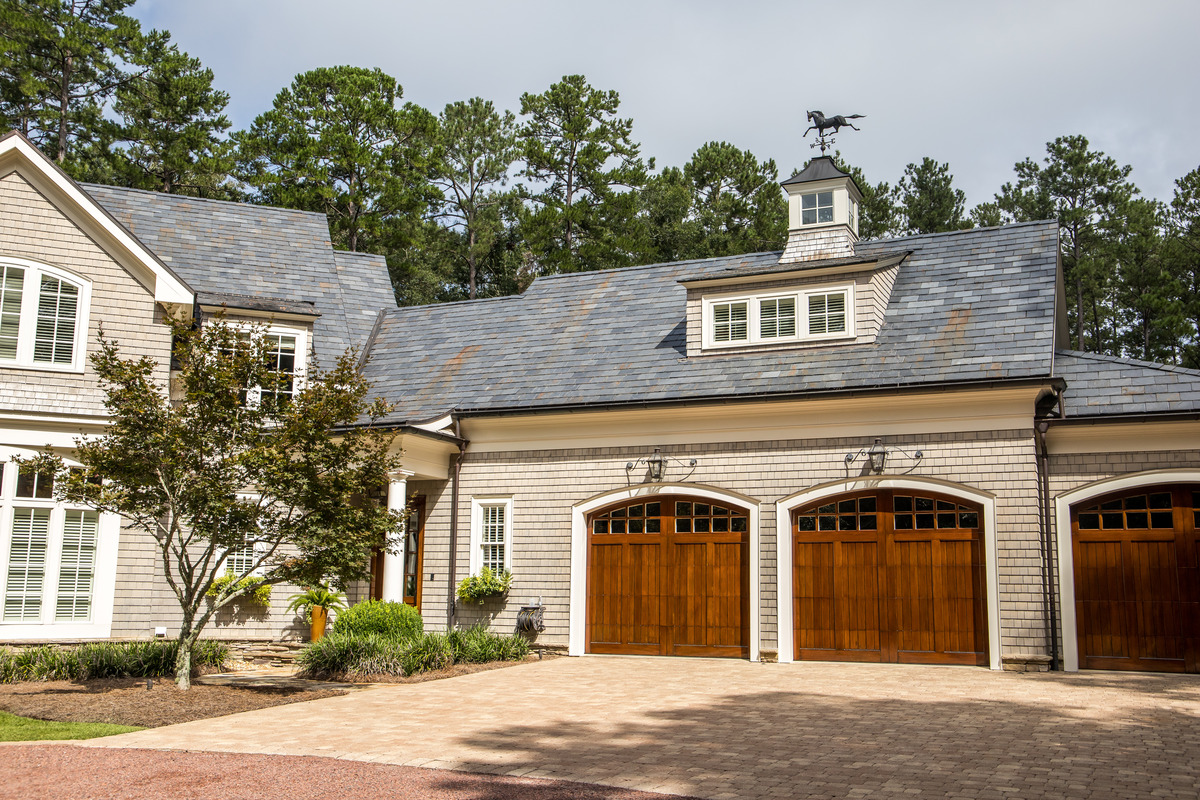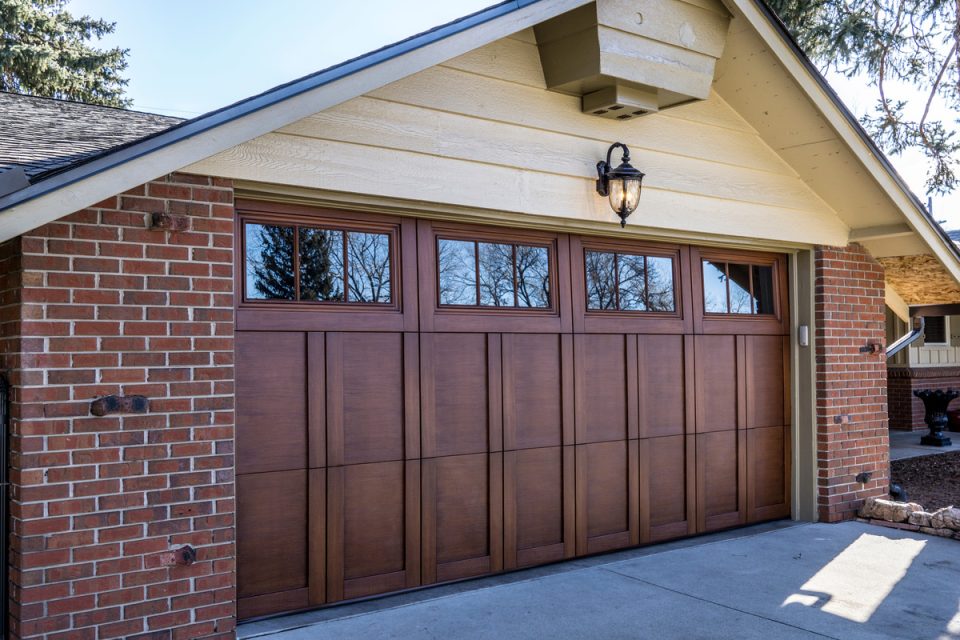Your garage door is a major part of your home’s curb appeal. It significantly impacts your property’s overall value. Yet, homeowners often overlook garage doors when planning home improvements. Don’t make this mistake.
Garage doors, apart from being an access point to your garage, provide security, insulation, and reduce noise. A beautiful garage door can also boost your home’s curb appeal and create a welcoming feeling. Choosing the right garage door is thus essential.
The market offers a wide variety of materials for custom garage doors. This can make choosing the right one difficult. Homeowners often worry about durability, maintenance needs, and finding a balance between style and function. This guide provides the information you need to make an informed choice.
1. Wood
Wood garage doors offer a natural beauty and warmth that few other materials can match. They come in a wide range of styles and finishes. Thus customizing garage doors to perfectly complement your home’s architecture becomes easy.
Wood doors add a classic look to any home. You can stain or paint them in any color you choose. This gives you endless design possibilities. However, wood requires regular maintenance to keep it looking its best. It’s also susceptible to damage from the elements, such as moisture and pests.
If you choose a wood garage door, consider cedar, redwood, or mahogany. These woods are known for their durability and resistance to rot.
2. Steel
Steel garage doors are a popular choice for their durability and security. They require very little maintenance, making them a practical option for busy homeowners.
Steel doors come in a variety of styles, fitting different garage designs. You can choose raised panels for a traditional look, a carriage style for a classic feel, or a modern flush design for a sleek and contemporary appearance.
While steel is strong, some homeowners worry about rust. However, modern steel doors have protective coatings that prevent rust. You can also add insulation to a steel door to improve energy efficiency and reduce noise.
3. Aluminum
Aluminum garage doors are lightweight and resistant to corrosion. They have a modern aesthetic that complements contemporary homes.
Aluminum is a highly customizable material. You can choose from a wide range of colors and textures. You can also add glass inserts for a unique look and increased natural light.
While aluminum is strong, it’s not as dent-resistant as steel. If you live in an area with frequent hail storms or have children who play near the garage, you may want to consider a different material.
4. Glass
Glass garage doors create a contemporary look and allow plenty of natural light into your garage. They’re a stylish choice for modern homes or for those who want to brighten up their garage space.
You can choose from different types of glass, including frosted, tinted, or insulated. Frosted or tinted glass offers more privacy, while insulated glass helps to regulate the temperature in your garage and improve energy efficiency.
Some homeowners worry about privacy with glass garage doors. However, frosted or tinted glass can address this concern. Additionally, insulated glass can help to reduce energy costs by preventing heat loss in the winter and heat gain in the summer.
5. Composite Materials
Composite garage doors are a newer option in the market. They offer the low maintenance of steel or aluminum but with a wider variety of looks. Some composite doors can mimic the appearance of wood or other materials, giving you the best of both worlds.
Composite materials are also a more environmentally friendly choice than some other options. They’re often made from recycled materials and are durable enough to last for many years. This makes them a sustainable and cost-effective choice for your garage door.
6. The Importance Of Insulation
Insulation plays a crucial role in custom garage door performance. It improves energy efficiency by preventing heat loss in the winter and heat gain in the summer. This can lead to significant savings on your energy bills.
Insulation also helps to regulate the temperature in your garage, making it more comfortable to use year-round. Additionally, it can reduce noise transmission, creating a quieter environment both inside and outside your home.
When choosing a garage door, consider different insulation options. Polystyrene is a common and affordable choice, while polyurethane offers superior insulation properties but can be more expensive.
Conclusion
Choosing the right garage door material is a crucial step in enhancing your home’s curb appeal, security, and energy efficiency. It’s important to weigh the pros and cons of each material to find the perfect fit for your needs and budget.
Before making your final decision, check your local building codes and restrictions. Consult with a garage door professional for personalized advice. They can help you choose the right material and design for your home. Also, research manufacturers’ warranties and maintenance requirements to ensure your investment lasts for years to come.
Don’t underestimate the impact of a new garage door. It can transform your home’s exterior and add value to your property. Invest in a beautiful and functional custom garage door and unlock your home’s full potential.


